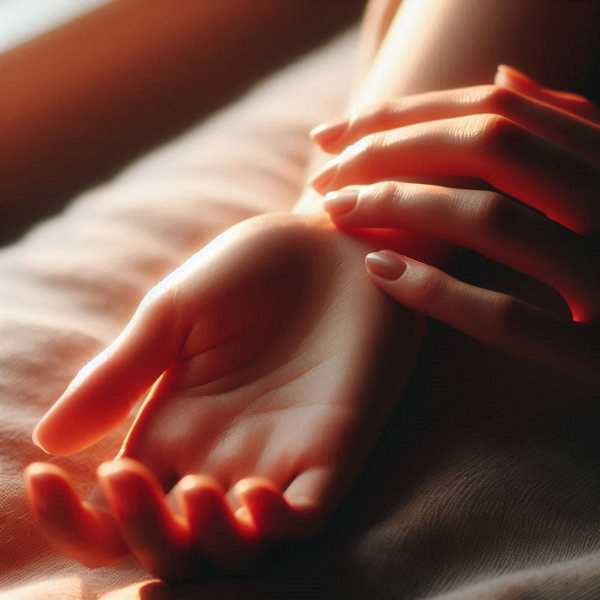
We start developing a sense of touch before we are born and can distinguish between self-touch and the touch of another when we first enter the world. All animals have evolved with a sense of touch, even single-celled organisms. Many plants can also respond to tactile stimuli. The tactile hair of early mammals, which provided a sense of touch, evolved before the secondary use of hair as a protective insulator. Seals and walruses have very sensitive whiskers that can sense fish moving in the water in complete darkness. How touch evolved is one of the least researched and understood senses, including the body’s largest sensory organ, the skin.
As well as shaping and holding our body together, our skin protects us from infection and helps maintain a steady body temperature. Of all the parts of the human body that experience touch, the fingertips of our hands evolved to be the most important. In a recent study, scientists found that people can detect nanoscale (one-thousandth of a micrometre) wrinkles on a smooth surface with their fingertips. Although receptors on the skin are fundamental, other senses contribute to our sense of touch as we experience the world around us. For instance, as we pick up a glass of water to drink, we move our hand in space, grip the glass, sense the weight, and move the glass to keep the water level. This simple movement involves the coordination of multiple senses like vision, tactile sensations, haptic feedback, and proprioception, the sense of where our body is at any given moment.
Within the brain, we have a complete map of the surface of our body, including our hands, fingers, face, lips, and feet. This internal perception of our body’s boundary, with all the touch information, is fundamental to how we navigate our world and plays an important role in our sense of self. We have many words for types of touch: caress, stroke, embrace, cuddle, press, tap, hold, squeeze, brush, and tickle. With touch, we can sense texture, hardness and softness, shape, size, and temperature as well as whether something is pleasant or unpleasant.
When we have an operation that includes anaesthetic, we lose our sense of touch for a while. Some people can experience loss of touch more permanently when their peripheral nervous system is damaged, which can have a devasting impact on their day-to-day lives.
Our sense of touch is always on in the background of our experience, often unnoticed and unacknowledged, lighting up physical sensations around the boundary of our body, from the soles of our feet to the top of our head, down to the tips of our fingers.
As social animals, touch can provide a sense of deep emotional connection and well-being beyond language and thought. Being more aware of our sense of touch connects with the direct reality of the present, allowing us to let go of the thoughts that are often about something completely different. Touch grounds us in the here and now, where we can access the peace and calm to respond skilfully with openness and kindness to whatever arises.
Suggested weekly practice
- Explore being more sensitive and aware of your sense of touch during the week. Using touch as a sense to ground yourself in the present moment
- Sit in front of a fruit bowl with your eyes closed and explore the different textures, shapes, hardness and softness, temperature, and weight of the fruit
- Notice the importance of interpersonal touch with others and how this reinforces emotional connection and well-being in our relationships
Guidance
Find somewhere undisturbed and sit in a comfortable, dignified, and upright posture, where you can remain alert and aware.
There are two guided practices for this session. You can close your eyes, or lower your gaze while the meditations play.
- Play the first settling practice, then read through the session content, which you can print off if that helps.
- Then play the second practice to explore and appreciate your sense of touch in awareness.
